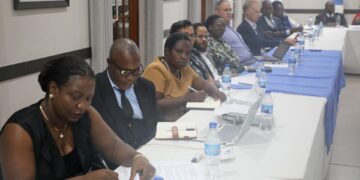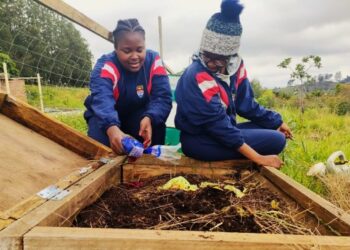“Today, I want to be the mummy pig in the story ‘Three Little Pigs’ so I can build the houses for my piglets’’.
These and many more interesting conversations children have when Role Play activities are explored. I can’t even begin to explain the fun, excitement and engagement of body and mind involved in Role Play. If children are not Role Playing, what then are they doing? That is definitely food for thought.
What exactly does roleplay mean? Role Play is an activity where children play pretend and act out roles given to them based on a story, imagination or real-life scenarios. It is how children make sense of their world, acting out experiences, ideas or stories. Role Play can be done across all topics or themes and entails using a variety of resources like props, clothes, location and many more.
Fred Rogers said ‘’When children engage in pretend play, they are using their imaginations to move beyond the bounds of reality. A stick can be a magic wand, a Sock can be a puppet and a little child can be a Superhero’’.
Role Play gives children the opportunity to tell stories in their own words and actions: putting their imagination and creativity to work. Research has shown that Role Play is very crucial in building children’s social competence, including their ability to self-regulate and cope emotionally. It is also very essential for language and vocabulary development. When children Role play, they develop their communication skills as they interact and explore with each other.
A typical Role Play activity has four main stages: identify the situation, add details, assign roles and act out the scenario. The children MUST be involved in all the stages. It should never be planned in isolation of the children. It is also important to note that Role Play activities can be structured or unstructured. That is, the teacher can either facilitate the activity or the children carry it out independently during a class session or free choice play.
The benefits of Role Play are too numerous and cannot be over emphasised. Let us take a look at a few. It involves experiential learning, facilitates the expression of attitude and feelings, helps make abstract ideas more concrete, involves experiential learning and provides a memorable learning experience.
Did you know that Role play fosters children’s self-esteem, creativity, communication skills, physical development and ability to solve problems? How, you would ask? It’s a good way for children to get into character, act out real-life or imaginary performances, solve the challenges they are faced with during play using their creativity and imagination and having lots of fun while at it.
You might ask, why Role Play? In a short but precise answer, Role Play prepares children for real- world situations. They acquire a good number of skills like Negotiation, debate, teamwork, cooperation and persuasion that help them as they continue to grow and develop.
“The best way of successfully acting a part is to be it” – Sir Arthur Conan Doyle



















































































 EduTimes Africa, a product of Education Times Africa, is a magazine publication that aims to lend its support to close the yawning gap in Africa's educational development.
EduTimes Africa, a product of Education Times Africa, is a magazine publication that aims to lend its support to close the yawning gap in Africa's educational development.